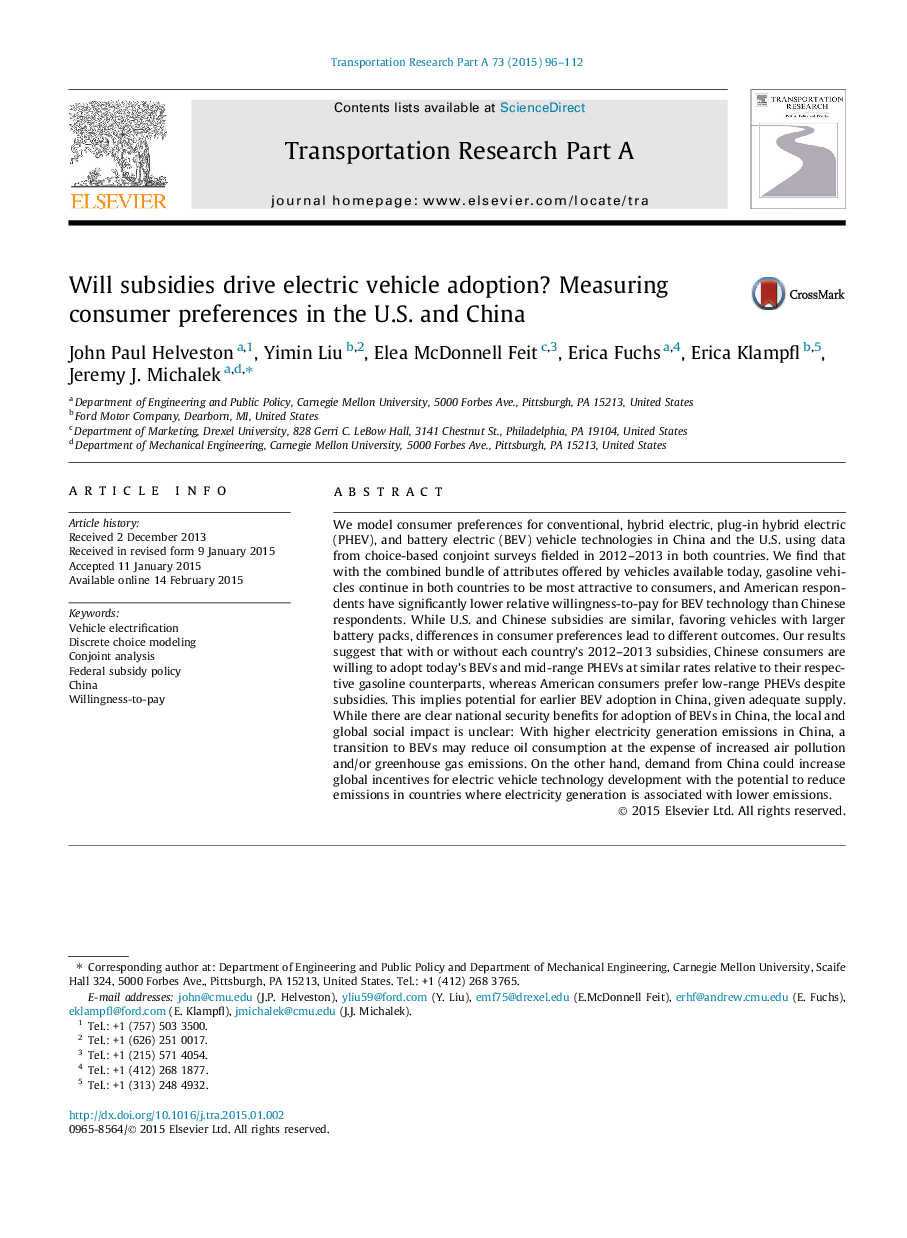| کد مقاله | کد نشریه | سال انتشار | مقاله انگلیسی | نسخه تمام متن |
|---|---|---|---|---|
| 311479 | 533950 | 2015 | 17 صفحه PDF | دانلود رایگان |
• We design and field a conjoint survey on vehicle preferences in the U.S. and China.
• We model consumer preferences for conventional, hybrid, and electric vehicles.
• We find U.S. faces strong opposition to BEVs; Chinese are more willing to adopt.
• Subsidies do not change preference order among technologies in either country.
• EVs can improve China oil security, but emissions implications are uncertain.
We model consumer preferences for conventional, hybrid electric, plug-in hybrid electric (PHEV), and battery electric (BEV) vehicle technologies in China and the U.S. using data from choice-based conjoint surveys fielded in 2012–2013 in both countries. We find that with the combined bundle of attributes offered by vehicles available today, gasoline vehicles continue in both countries to be most attractive to consumers, and American respondents have significantly lower relative willingness-to-pay for BEV technology than Chinese respondents. While U.S. and Chinese subsidies are similar, favoring vehicles with larger battery packs, differences in consumer preferences lead to different outcomes. Our results suggest that with or without each country’s 2012–2013 subsidies, Chinese consumers are willing to adopt today’s BEVs and mid-range PHEVs at similar rates relative to their respective gasoline counterparts, whereas American consumers prefer low-range PHEVs despite subsidies. This implies potential for earlier BEV adoption in China, given adequate supply. While there are clear national security benefits for adoption of BEVs in China, the local and global social impact is unclear: With higher electricity generation emissions in China, a transition to BEVs may reduce oil consumption at the expense of increased air pollution and/or greenhouse gas emissions. On the other hand, demand from China could increase global incentives for electric vehicle technology development with the potential to reduce emissions in countries where electricity generation is associated with lower emissions.
Journal: Transportation Research Part A: Policy and Practice - Volume 73, March 2015, Pages 96–112
